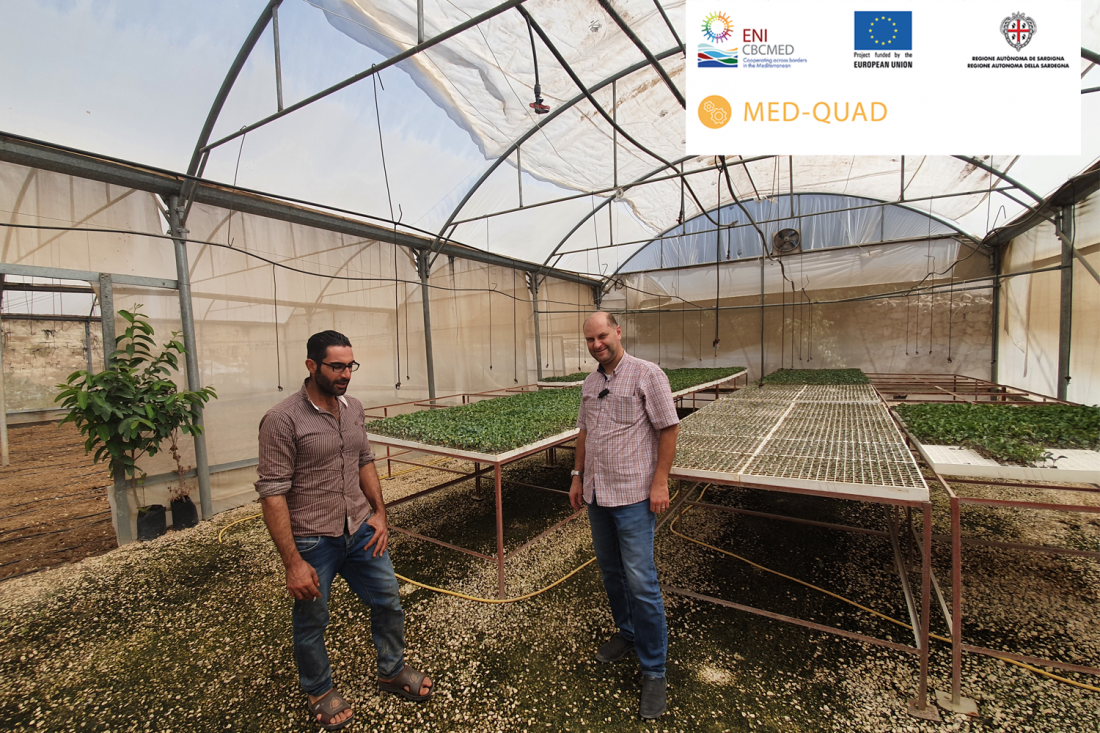MED-QUAD establishes cooperation with Palestinian entities for the Smart Water Use Applications living lab

On the 9th of September 2021, the partner of the project MED-QUAD, Palestine Polytechnic University, has conducted technical and awareness field visits within the framework of the project work plan to establish the required cooperation environment for the Smart Water Use Applications (SWUAP) lab activities.
The living lab is an open space accessible to the citizens where pilot projects regarding new products and services are tested, resulting from the fermentation process of the Quadruple Helix approach factors and serve the specific needs of citizens. The MED-QUAD project foresees the pilot operation of 2 cross border living labs in each country, with the first one concerning the "smart water use and applications" (SWUAP). The goals of the living lab are the following
- The analysis of the drinking water quality and the safety devices in water reserve tanks and networks
- The traceability of water quality from the source to the households
- The smart control devices and more efficient use of water by the citizens
- The quality control of irrigation water
- The traceability of vegetables "from field to shelf"
- smart packaging and safe use from the customers
Τhe first visit was to the water management department at the Hebron Municipality. A meeting took place with the person responsible for water quality for human use, Dr Adel Salaymeh. At the same time, the second visit was to Al-Ragabi farm. The meeting with the owner took place at the farm to establish cooperation within the framework of the SWUAP Lab activities related to water quality in agriculture use.
The meetings were attended by the local project manager Dr Momen Sughayyer and Dr Rami Arafeh, project technical team/ member of the City Development Groups. They conveyed to the associates the purpose of the project and the expected positive impact of the SWUAP lab on the local community.
It is worth noting that the partners created City Development Groups for the needs of the MED-QUAD project. In each involved country, local authorities, university, private and public sector, selected 3 to 5 individuals who will be trained able to think long-term about the city’s prospects and research needs.







